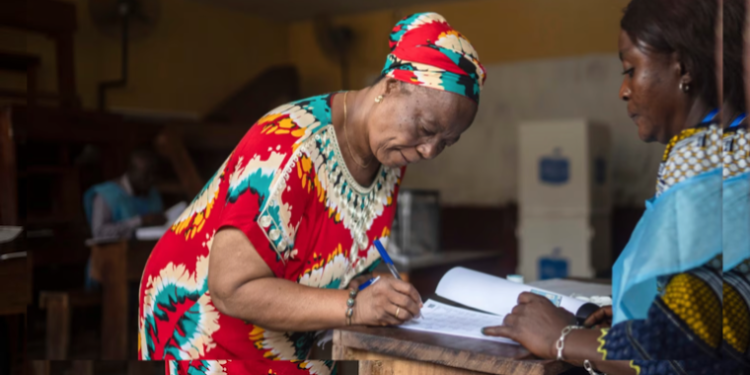By THE OBSERVER UG
Congo headed to the polls on Wednesday for the presidential election, with significant logistical and security challenges. Voting commenced nearly two and a half hours late in the capital, Kinshasa. Approximately 44 million people, almost half of the population, were expected to vote, but many faced difficulties, including several million displaced by conflicts in the country’s east.
The fighting in the eastern regions prevented 1.5 million people from registering to vote. Despite the challenges, voters expressed hope for positive change and security. However, numerous issues were reported, such as voters not finding their names on voting lists and voting cards being illegible, causing delays and agitation among the electorate.
Concerns about the credibility of the election were raised by both outside observers and locals. Some polling stations were still awaiting materials on the eve of the vote, and there were worries about smudged ink on voting cards and improper auditing of the voter registration list. Local rights groups expressed doubts about the credibility, transparency, and reliability of the election results.
President Felix Tshisekedi sought his second and final five-year term, facing about 20 other candidates. His main rival appeared to be Moise Katumbi, a former governor and millionaire businessman. The opposition remained fragmented, making Tshisekedi the likely favorite. Tensions in the eastern city of Bunia led to the vandalization of a voting center, and gunshots were heard, preventing some people from voting.
The election commission aimed to improve credibility by making changes in the process and spending over $1 billion on the vote. One significant change was the release of results from each of the 75,000 voting stations one at a time, as opposed to being announced in bulk. However, concerns about transparency persisted, with some observers denied access, and others questioning the process.
The election took place amid surging violence in eastern Congo, where over 120 armed groups are vying for power and resources. The resurgence of M23 rebels, allegedly backed by Rwanda, added to the complex security situation. The outcome of the election will play a crucial role in shaping the political landscape of one of Africa’s largest nations.







Discussion about this post